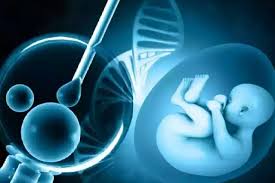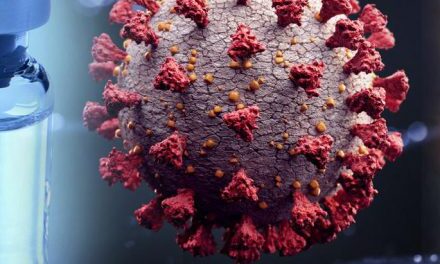In a breakthrough study, scientists from Rutgers University-New Brunswick have identified a gene variant associated with early miscarriages in women, potentially revolutionizing the understanding of genetic causes of infertility. The discovery is linked to accelerated reproductive aging, a condition that leads to the production of abnormal eggs, which can significantly increase the risk of miscarriages.
The findings, published in Proceedings of the National Academy of Sciences, could have profound implications for fertility treatments and reproductive planning. Scientists believe this discovery may help women understand their genetic risk for early infertility and take proactive measures to manage their reproductive health.
The study focuses on a variant in the KIF18A gene, which codes for a kinesin protein involved in cell division. Researchers found that a single amino acid change in this gene causes the protein to age eggs more rapidly, leading to higher rates of aneuploidy — a condition where eggs have an abnormal number of chromosomes. The risk of miscarriage increases significantly when embryos have aneuploidy, a factor that becomes more common with age.
“Miscarriages often occur because women produce eggs with aneuploidy. Our research reveals that women with this genetic variant age their eggs more quickly, making them more susceptible to producing abnormal eggs,” explained Karen Schindler, a professor in the Rutgers Department of Genetics and lead author of the study.
The team of researchers, led by Professor Schindler and Jinchuan Xing, conducted a comprehensive genetic analysis of women with high rates of embryonic aneuploidy. By analyzing DNA data from a biobank at an in vitro fertilization (IVF) clinic, they identified a clear genetic pattern linking the KIF18A variant to abnormal egg production. Follow-up studies with genetically engineered mice confirmed that the mutation led to an earlier onset of egg abnormalities.
“This is more than just a correlation,” said Leelabati Biswas, co-first author of the study. “Our findings show a causal relationship between the genetic variant and early egg aging, providing a solid foundation for further research.”
The research team hopes that this discovery will pave the way for additional genetic variants linked to egg aneuploidy. By identifying more such variants, scientists aim to offer targeted fertility treatments based on a woman’s genetic profile.
Schindler emphasized the potential for this research to change how women approach reproductive planning. “If women know they carry a genetic risk for premature infertility, they can make more informed decisions about when to have children or consider egg freezing at a younger age,” she said. “Starting at age 28, rather than 32, for example, could significantly improve the chances of successful conception.”
The research was conducted by a team of scientists from Rutgers University, including Professor Xing, co-authors Katarzyna Tyc, Mansour Aboelenain, Siqi Sun, and Jason Liu, as well as Assistant Professor Min Xu. Collaborators from RMA NJ, Juno Genetics, and the Ruder Boskovic Institute in Croatia also contributed to the study.
As this research progresses, it may eventually lead to personalized fertility treatments that could prevent miscarriages caused by genetic factors, offering hope to many women facing infertility challenges.
Journal Reference: Biswas, L., et al. (2024). Maternal genetic variants in kinesin motor domains prematurely increase egg aneuploidy. Proceedings of the National Academy of Sciences. DOI: 10.1073/pnas.2414963121.












